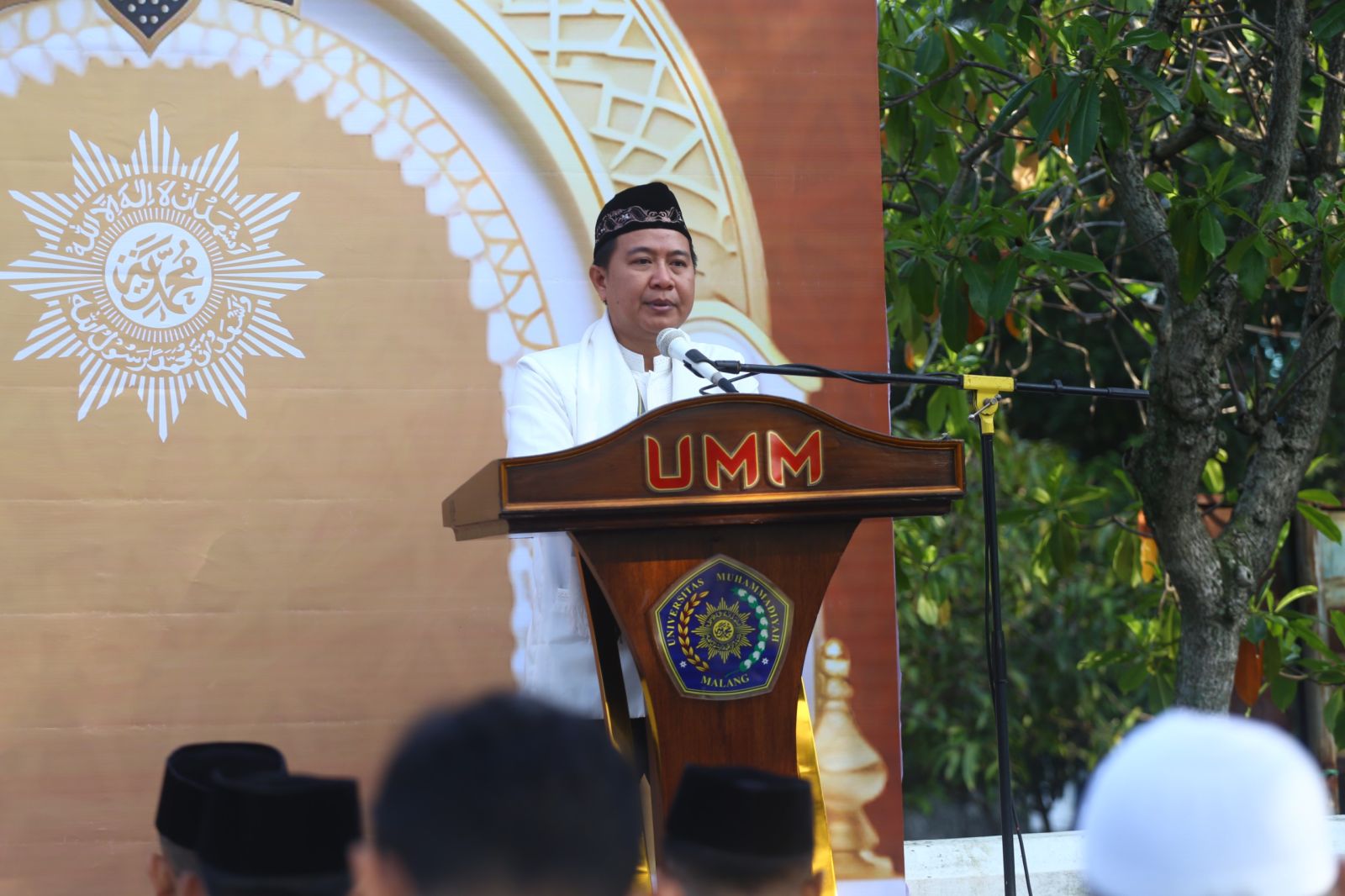 |
| Prof. Hilman Latief, MA, Ph.D. |
We need to develop our minds and souls to strive for goodness. In Surah Al-Balad, verses 11–20 tell and explain a concept or principle that is important to reflect on, especially to spend the days after Hari Raya Iedul Fitri with kindness. It includes being socially involved to encourage humanity.
It was explained by Prof. Hilman Latief, MA, Ph.D., as the General Treasurer of the Muhammadiyah Central Executive Leadership during the Eid al-Fitr khutbah at the University of Muhammadiyah Malang (UMM) on April 10th, 2024. According to him, there is a "difficult road" that must be climbed or traveled, or a "steep and hot road". A path that not everyone is able to conquer.
"The path includes several things. First, releasing a slave from enslavement, second, giving food on the day of starvation, third, helping orphans who are close relatives, and last is helping the poor who are very poor," said the Director General of Hajj and Umrah.
First, release slaves from enslavement. For a long time, this kind of enslavement and exploitative ability was one of the things that showed people's strength and power. The Qur'an asks the faithful to begin to open their eyes, establish justice, uphold equality, and elevate human dignity. Therefore, it is necessary to free the surrounding environment from exploitative systems that approach enslavement.
Second, give food on the day of starvation. Zakat, or shadaqah, as a form of expression of generosity, must be maintained in a professional, transparent, accountable, and sustainable manner. It is because crisis can happen anywhere and anytime. As people of faith, we must always be ready to donate some of what we have so that others can be helped so that they can live a decent life.
"One of the entities that should get our attention is helping and providing food for orphans who are related to each other," he explained.
An orphan is generally defined as a child who has lost his or her father. However, sociologically, it can also mean a child who does not have economic support, although physically, the parents are still there. Help the orphans, especially our close relatives, as the most precious treasure is family. Lastly, not everyone has the same luck and opportunity to earn a decent living. So, help the poor, who are very poor both during Ramadan and especially afterwards.
Meanwhile, UMM Rector, Prof. Dr. Nazaruddin Malik, SE, M.Si., said that a good spiritual life will become energy to continue to provide progress and enlightenment for the life of dignified humanity.
"Eid al-Fitr, after a month-long Ramadan fasting, should be able to help us become better. We are able to pray and feel deep gratitude in our hearts," he concluded. ( /put)